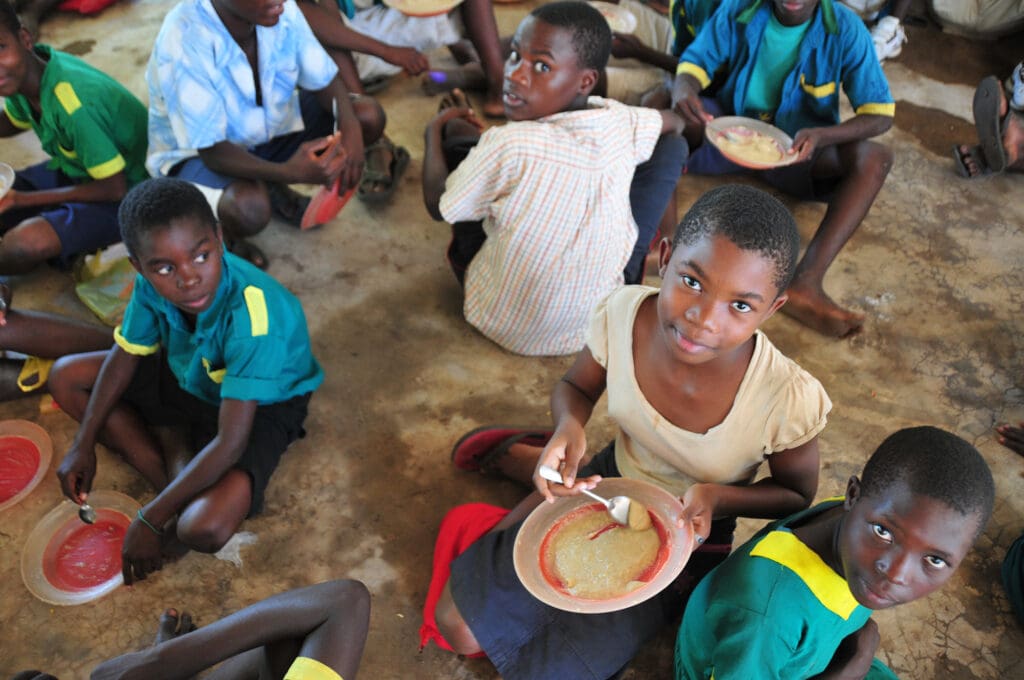
Improving Nutrition is Essential to Ending Global Hunger
“Good nutrition is the bedrock of human well-being.” This compelling truth opens the 2014 Global Nutrition Report.
For young children, good nutrition enables the body to grow and develop to its full potential. Studies show that well-nourished children are more likely to succeed in the classroom and earn higher wages as adults than their malnourished peers.
This is why the Roadmap to End Global Hunger’s 2015 Policy Brief identifies nutrition as one the four main pillars of an effective U.S. strategy to build global food security.
It is particularly important to focus on good nutrition during the first 1,000 days, a window of opportunity between a woman’s pregnancy and her child’s second birthday. The negative effects of poor nutrition during the 1,000 days are irreversible, while getting the right nutrients at this time produces lasting benefits in both mental and physical development.
Spending on nutrition support for mothers and young children is a proven investment. In fact, recent analysis shows that for every $1 invested in improving nutrition, $16 is returned to the economy through improved worker productivity and lower health care costs.
U.S. leadership is essential for maintaining international political will and adequate funding to reduce global malnutrition. Malnutrition has many causes and effective nutrition programming is needed to address each of these causes:
- We need better nutrition education for expectant and new mothers, including the importance of exclusive breastfeeding for babies up to age six months.
- We need to support programs that increase the availability of nutritious foods, especially fortified foods and nutrition supplements for pregnant women and children 6-24 months.
- We need to help communities gain access to clean water and adequate sanitation to reduce the risk of diseases that rob the body of its ability to absorb vital nutrients.
When the world acts to address malnutrition, the results are more than just impressive economic statistics. With WFP’s help, millions of mothers worldwide are witnessing their children grow and prosper.
Take Khourn Kom, a young mother who lives with her family in a two-room house in rural Cambodia. Throughout her pregnancy and her baby’s first six months, Kom received monthly distributions of Super Cereal from the United Nations World Food Programme (WFP). When her child turned seven months old, WFP began providing a different product Super Cereal Plus, which responds to the unique nutritional needs of children 6-23 months.
“This food is good for my son,” Kom told WFP staffers in the field, adding that she now feels confident her son will grow into a strong, healthy boy.
As the 2014 Global Nutrition report points out, the well-being of all people begins with good nutrition: “Without good nutrition, people’s lives and livelihoods are built on quicksand.”
Let’s advocate together for a smarter approach to global nutrition, along with robust levels of funding that can turn quicksand into a rock-solid foundation for the future health and success of malnourished children everywhere.
Scott Bleggi is Senior International Policy Analyst at Bread for the World Institute, where he supports the organization’s larger advocacy efforts to end hunger and poverty, with a focus on maternal and child nutrition policies and programs in U.S. government developmental assistance.
Allan Jury is Senior Advisor at World Food Program USA, where he works with lawmakers and advocates to shape U.S. food and agriculture policies. Before joining WFP USA in 2013, he worked as the director of the U.S. relations office for the United Nations World Food Programme after spending 25 years abroad working for the U.S. Department of State.




